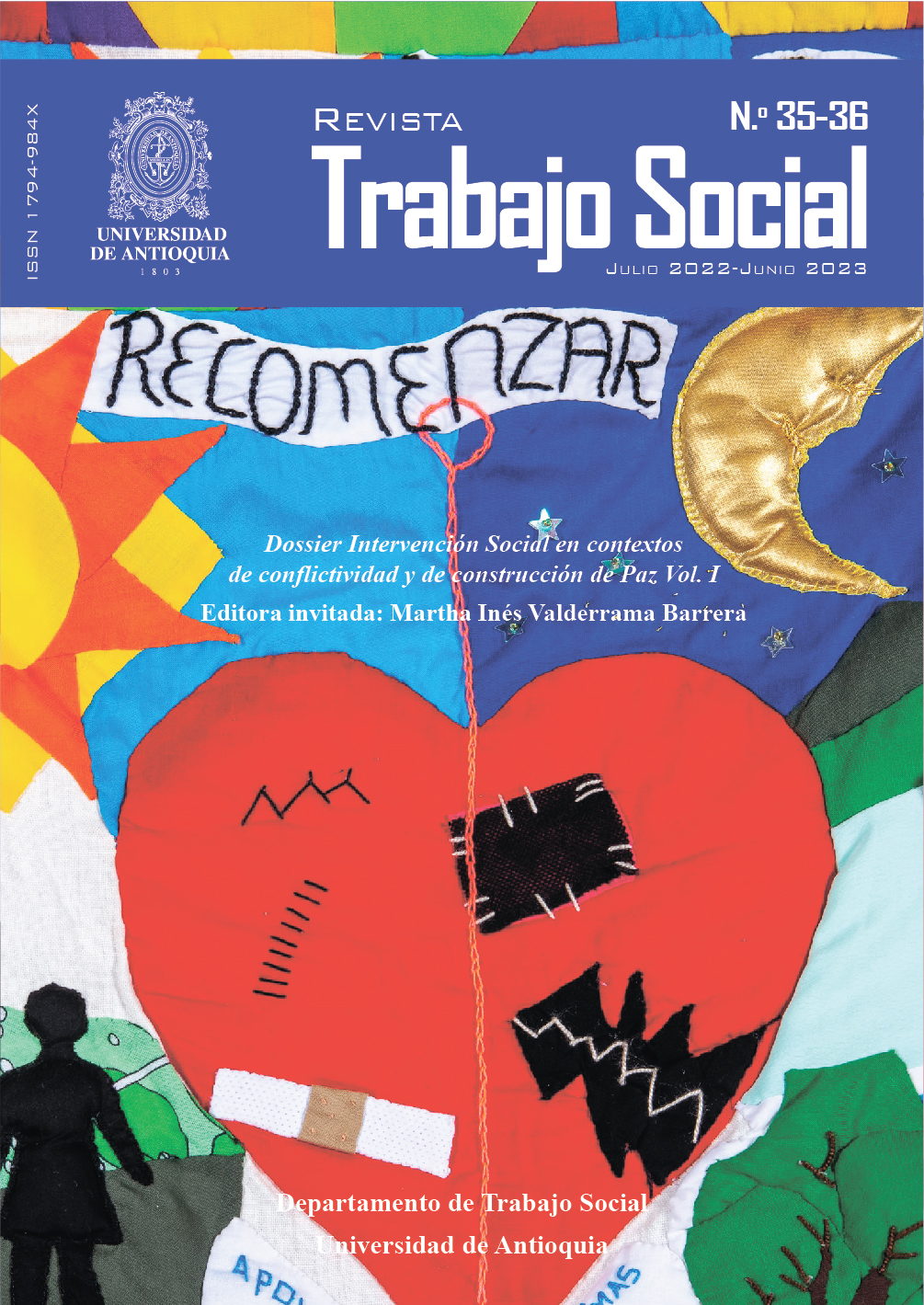The pace of Colors LGBT Committee commune 8: collective resistances for the peacebuilding
Keywords:
LGBT Committee, Collective action , PeacebuildingAbstract
Peace in Colombia is quite a challenge, as well as understanding the armed conflict in the country. This memory work recounts the experience that was shared with the LGBT Committee from Medellín’s Commune 8 – first LGBT collective subject of reparation in Colombia –, around the searches on ways to contribute to the peacebuilding, the understandings of the armed conflict and the recognition of the historical violence exerted on the LGBTIQ+ population. It was possible to identify that the country has a differentiated regulatory framework, however, the gaps in terms of respect and inclusion for this population show that there are still gaps to speak of recognition and materialize the stable and lasting peace.
Downloads
References
Bilbao, P. A. (2010, 01 de enero). Sobre el concepto de memoria histórica. Sociología Crítica. https://acortar.link/bxkmMV
Buitrago Rojas, A. P., Cundumi Díaz, M., Yate Yara, M. T. & Yaya Cuervo, R. (2019). La paz desde abajo. Breve historia, impacto y participación de los movimientos sociales en Colombia. Edi-ciones USTA.
Centro Nacional de Memoria Histórica. (2015). Aniquilar la diferencia. Lesbianas, gays, bisexua-les y transgeneristas en el marco del conflicto armado colombiano. CNMH, UARIV, USAID & OIM.
Caribe Afirmativo. (2020). Resistimos callando, re-existimos gritando. Memorias y experiencias de sujetos colectivos de reparación en el marco del conflicto armado en Colombia. Caribe Afirmativo.
Lederach, J. P. (2007). Construyendo la paz. Reconciliación sostenible en sociedades divididas.Centro Cristiano para Justicia, Paz y Acción Noviolenta Justapaz.
Melucci, A. (1994). ¿Qué hay de nuevo en los nuevos movimientos sociales? En E. Laraña & J. Gusfield (eds.), Los nuevos movimientos sociales: de la ideología a la identidad (pp. 119-150). Centro de Investigaciones Sociológicas –CIS–.
Paladini, B. A. (2012). Construcción de paz como emprendimiento político. una aproximación his-tórica, descriptiva, operativa y teórica. Instituto Universitario General Gutiérrez Mellado.
Quiroz Trujillo, A., Velásquez Velásquez, Á. M., García Chacón, B. E. & González Zabala, S. P. (2002). Técnicas interactivas para la investigación social cualitativa. Universidad Católica Luis Amigó.
Downloads
Published
How to Cite
Issue
Section
License
Copyright (c) 2024 Revista Trabajo Social

This work is licensed under a Creative Commons Attribution-NonCommercial-ShareAlike 4.0 International License.




